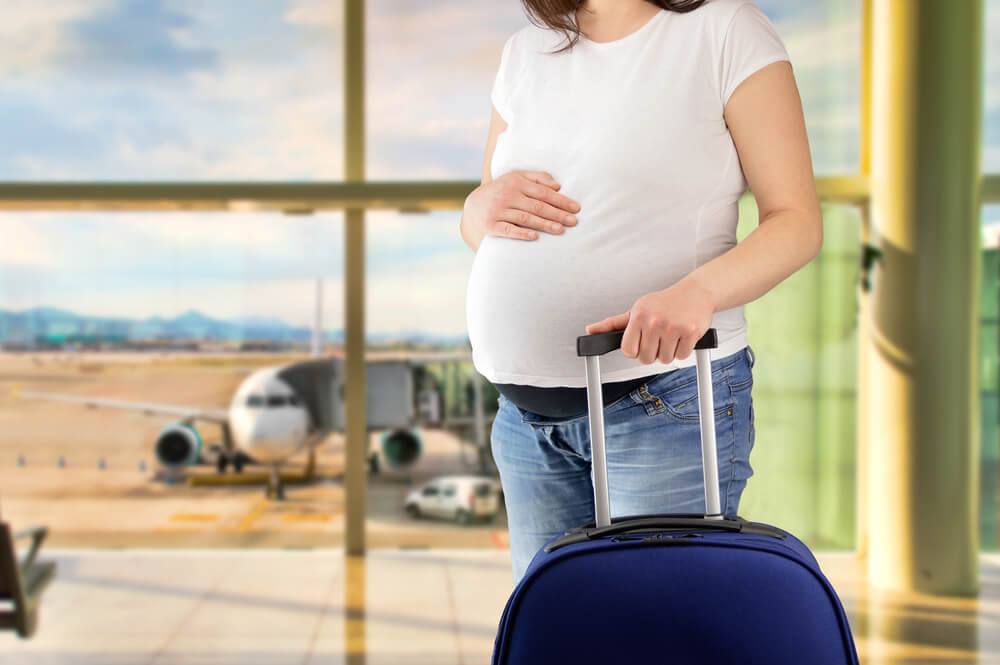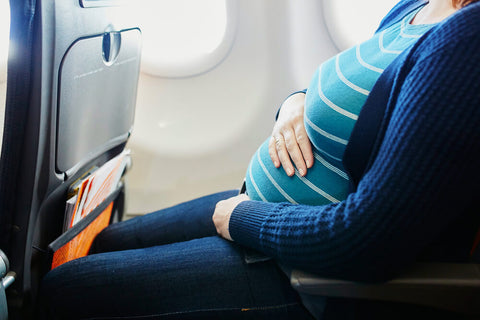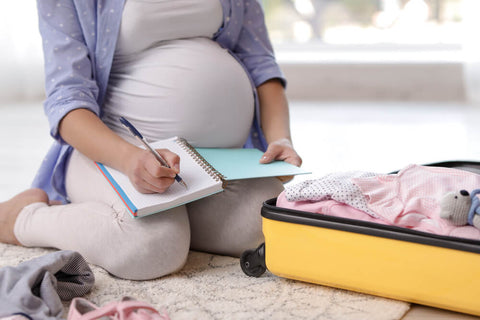Safe Skies: Exploring the Safety of Flying During Pregnancy

Congratulations on your pregnancy! While the anticipation of your little one's arrival is exciting, navigating the logistics, such as flying during pregnancy, can be overwhelming. Whether it's for a family event or a work commitment, the question of safety and well-being is paramount. Rest assured, this article is here to provide you with all the information you need to confidently manage flying during pregnancy.
Flying When Pregnant – Is It Safe?
Rest assured, if you have a normal and healthy pregnancy, flying is generally safe for you and your baby. Numerous studies have demonstrated that flying poses no significant risks to pregnant women or their unborn children. However, it's essential to be mindful of airline regulations and your own health status.
When Is the Safest Time to Fly?
The optimal time for flying during pregnancy is typically during the second trimester, between 14-27 weeks. At this stage, you're likely to experience increased energy levels, reduced morning sickness, and a decreased risk of miscarriage. Most airlines impose restrictions on flying after 36 weeks for single pregnancies and after 32 weeks for multiple pregnancies. Additionally, travel after the 28th week often requires a doctor's note confirming a healthy pregnancy.
Potential Health Risks
While flying is generally safe, there are some potential health risks to consider, such as Deep Vein Thrombosis (DVT), cosmic radiation exposure, and motion sickness.
Deep Vein Thrombosis (DVT)
DVT is a rare but serious condition where blood clots form in deep veins, often occurring in the legs. Pregnant women are at a slightly higher risk due to hormonal changes and reduced blood flow. To reduce the risk of DVT, consider wearing compression socks, staying hydrated, walking around periodically, and wearing loose-fitting clothing.
Cosmic Radiation
Exposure to cosmic radiation at higher altitudes is a concern for some pregnant women. However, the level of radiation during a single flight is minimal and generally not considered harmful.
Motion Sickness
Pregnant women may be more susceptible to motion sickness while flying. To alleviate symptoms, stay hydrated, eat light meals before travel, choose a seat over the plane's wing, position the air vent toward your face, and avoid reading during the flight.
List of Things If You Are Flying When Pregnant
Before embarking on your journey, ensure you have the following essentials:
- Travel insurance documents
- Doctor's report indicating your due date and health status
- Prenatal records
- Any necessary medication or vitamins
- Confirmation of required vaccinations at your destination
- Snacks and water for the flight
- Contact information for medical care at your destination
Conclusion
In conclusion, flying during pregnancy can be a safe and manageable experience with proper preparation and precautions. By following the guidelines outlined in this article, you can confidently navigate air travel while ensuring your well-being and that of your unborn child. If you have any additional tips or experiences to share, we'd love to hear from you in the comments below! Safe travels!
A few feeding essentials to bring when flying with baby
Feeding baby during a flight can be stressful especially if you come unprepared. These few handy tips will go a long way to ensuring a stress free flight. We recommend to pack the following feeding essentials:
- Pre-sterilised baby bottles with pre-boiled water inside. Allow enough so that you don’t need to clean and re-use any bottles during the flight.
- Cherub Baby Anywhere Warmer.
- Pre-measured portions of formula.





